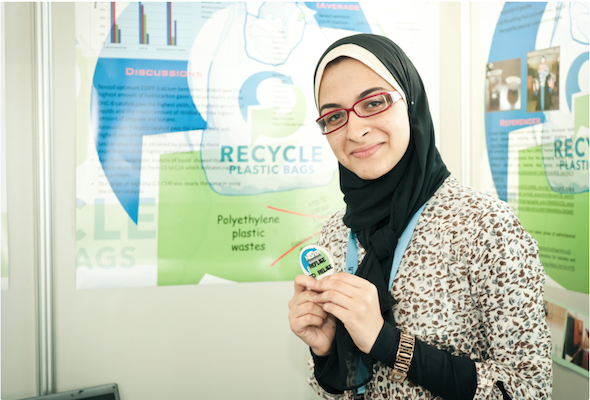Teenager develops inexpensive method to turn plastic waste into million-dollar biofuel

A new inexpensive way to turn plastic trash into fuel has been developed by an Egyptian teenager which could generate millions of dollars every year. The method produces biofuel by breaking down plastics using a cheaper and plentiful low-cost catalyst.
Azza Faiad, from the Zahran Language School in Alexandria in Egypt, has successfully converted plastic into fuel feedstocks, or the bulk raw material for producing biofuel, through a new catalyst called aluminisilicate. The catalyst reduces the cost of converting plastic waste into gaseous products, including methane, propane and ethane, which can be converted into ethanol for use as biofuel.
The chemicals extracted from plastic polymers are the same chemicals extracted from vegetation to create ethanol biofuel. The Egyptian Petroleum Research Institute Mamdouh Elmelawy was attracted to Faiad’s idea, which they believe would offer a substitute to fossil fuels through her new catalyst.
Faiad was granted by the institute an access to a lab with other researchers to help develop her trash-to-fuel formula. Faiad aims to take advantage on Egypt's high plastic consumption, estimated to be around one million tonnes a year.
The process could convert Egypt’s massive plastic waste into fuel that would generate $78 million biofuel per year, Faiad estimated. The technology could “provide an economically efficient method for production of hydrocarbon fuel,” Faiad said.
The teenager also believes the process could raise the total return to $163 million each year from Egypt’s plastic trash. Faiad had already won the European Fusion Development Agreement award at the 23rd European Union Contest for Young Scientists, and continues to work on a patent for her trash to fuel process.
Contact the writer at feedback@ibtimes.com.au or tell us what you think below





















